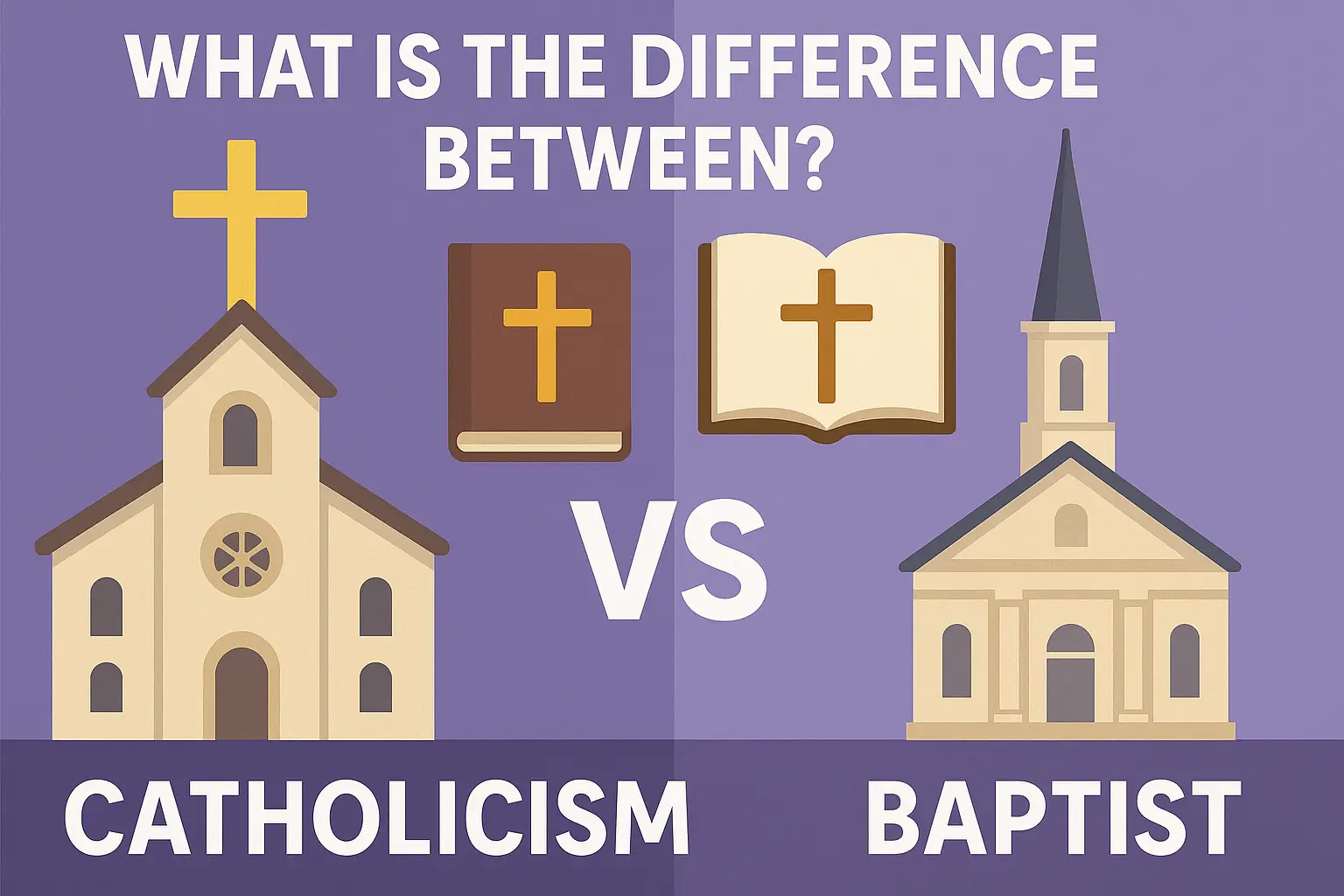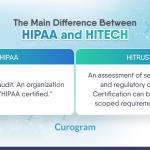Have you ever wondered about the differences between Catholicism and Baptist beliefs? You’re not alone.
Many people find themselves curious about the variations between these two branches of Christianity. Understanding these differences can help you appreciate the rich diversity within the Christian faith and perhaps even find clarity in your own spiritual journey. This article will unravel the distinctive beliefs, practices, and traditions that set Catholicism apart from Baptist Christianity.
As you read on, you’ll discover the unique elements that define each denomination and learn how they influence the lives of millions around the world. So, whether you’re exploring new spiritual horizons or simply curious, you’re in the right place to deepen your understanding. Let’s dive into what makes Catholicism and Baptist beliefs stand out from each other.
Core Beliefs
Catholicism emphasizes the authority of the Pope and the tradition of sacraments. Baptists focus on individual faith and baptism by immersion. Both value Jesus Christ, but their practices and beliefs differ significantly.
In the rich tapestry of Christianity, understanding the core beliefs of different denominations can be both fascinating and enlightening. Catholicism and Baptist traditions share the same Christian roots, yet they diverge in key areas that define their faith practices. Knowing these differences can deepen your appreciation for the diversity within Christianity.
Understanding God And The Trinity
Catholicism and Baptists both believe in one God and the Trinity, but their expressions of this belief vary. Catholics have a deeply structured understanding of the Trinity, emphasizing the Father, Son, and Holy Spirit as distinct but equal parts of one divine essence. This belief is often reflected in the rituals and sacraments of the Catholic Church.
Baptists also uphold the Trinity but tend to focus more on the individual’s direct relationship with God. Their interpretation stresses the personal experience of faith rather than the liturgical tradition. Have you ever wondered how these differing views shape the everyday lives of believers?
Concept Of Salvation
Salvation is a cornerstone of Christian faith, yet Catholics and Baptists approach it differently. Catholics view salvation as a lifelong process, supported by faith, good works, and participation in the sacraments. They believe that these elements are essential in nurturing one’s relationship with God.
Baptists, on the other hand, emphasize salvation through faith alone. They often stress the importance of a personal commitment and acceptance of Jesus Christ as Lord and Savior. This belief highlights the transformative power of faith, urging individuals to reflect on their own spiritual journey.
Have you ever considered how these perspectives might influence your approach to faith? Understanding these differences can inspire a more profound reflection on your own beliefs and spiritual path.

Scripture And Tradition
Catholicism views both Scripture and Tradition as essential, forming the foundation of faith. Baptists emphasize Scripture alone, considering the Bible as the sole authority. These differing perspectives shape their beliefs, worship, and practices.
Understanding the differences between Catholicism and Baptist beliefs can be fascinating, especially when you dive into their perspectives on Scripture and Tradition. It’s not just about reading the Bible; it’s also about how each faith interprets and practices its teachings. These two branches of Christianity offer unique insights into how the Word of God is understood and lived out in daily life.
Role Of The Bible
In Baptist churches, the Bible is seen as the ultimate authority. It’s considered the sole guide for faith and practice. You might find this surprising if you grew up in a tradition where church leaders or councils had a big say. Baptists encourage personal Bible reading, urging individuals to seek understanding and apply it to their lives.
Catholics, on the other hand, also hold the Bible in high regard but include other texts and teachings. Their understanding of the Bible is supported by church tradition. This means that interpretations of scripture can be influenced by historical teachings and church leaders.
Have you ever thought about how different your view of faith might be if you had to interpret everything on your own versus relying on a community of tradition?
Importance Of Church Tradition
For Catholics, tradition is a cornerstone of faith. It includes teachings passed down through generations. This tradition can be seen in practices, rituals, and even in the interpretation of the Bible itself. It acts as a guide, ensuring consistency in beliefs and practices across the global church.
Baptists typically have a different approach. They emphasize personal faith and direct interpretation of the Bible. Church tradition is less formalized, often varying from one congregation to another. This can lead to diverse expressions of faith but also questions about unity.
Imagine how different your spiritual journey might be if you were constantly exploring new interpretations versus following a well-trodden path.
Which approach resonates with you more? Does the idea of tradition offer comfort, or do you prefer the freedom to interpret for yourself?
Sacraments And Ordinances
Catholicism views sacraments as sacred rites delivering grace, while Baptists see ordinances as symbolic acts of faith. Catholics recognize seven sacraments, including baptism and Eucharist. Baptists emphasize two ordinances, baptism and communion, as expressions of belief and obedience.
Sacraments and ordinances are essential elements in both Catholicism and Baptist traditions. They represent key rituals that help believers connect with their faith and the divine. While both faiths hold these practices dear, they approach them differently, leading to unique experiences for their followers. Understanding these differences can enhance your knowledge and appreciation of each tradition.
Number Of Sacraments
Catholicism recognizes seven sacraments. These include Baptism, Eucharist, Confirmation, Reconciliation, Anointing of the Sick, Holy Orders, and Matrimony. Each sacrament serves a specific purpose and marks a significant spiritual milestone.
In contrast, Baptists typically observe two ordinances: Baptism and the Lord’s Supper (similar to the Eucharist). These are not seen as sacraments but as symbolic acts of obedience. They reflect one’s faith and commitment to follow Jesus’s teachings.
The difference in the number of sacraments and ordinances reflects deeper theological distinctions. While Catholics view sacraments as channels of grace, Baptists see ordinances as expressions of faith. How do these views influence your understanding of faith practices?
Significance Of Baptism
In Catholicism, baptism is more than a symbolic act; it’s a sacrament of initiation. It cleanses original sin and welcomes the individual into the Church. This practice often occurs in infancy, emphasizing the community’s role in nurturing faith.
Baptists, however, practice believer’s baptism. It’s performed on individuals who profess their faith, usually as older children or adults. This approach highlights personal faith and the conscious decision to follow Christ.
I recall attending a Catholic baptism where the sense of communal support was overwhelming. In contrast, witnessing a Baptist baptism felt like a powerful personal declaration. These experiences illustrate the unique emphasis each tradition places on community and individual faith.
Both traditions regard baptism as a profound commitment. They just express it in different ways. Which approach resonates more with your understanding of faith and community?
Church Authority
Church authority plays a vital role in shaping religious practices and beliefs. In Christianity, Catholicism and Baptist traditions offer distinct perspectives. Understanding these differences helps in appreciating their unique approaches to leadership and governance. Let’s dive into how each tradition views church authority.
Papal Authority
Catholicism emphasizes a centralized leadership structure. The Pope holds the highest authority in the Catholic Church. Catholics believe the Pope is the spiritual successor to Saint Peter. This belief is rooted in biblical teachings and tradition. The Pope guides global Catholic communities. His role includes interpreting theological matters, moral guidance, and making key decisions. This central authority helps maintain unity among Catholics worldwide.
Autonomy Of Local Congregations
Baptists prioritize independence within their church communities. Each Baptist congregation operates independently. They have the freedom to govern themselves without external influence. Local congregations make decisions on worship style and church governance. This autonomy allows Baptists to adapt to local needs and preferences. The Baptist tradition values democratic decision-making processes. Members actively participate in choosing leaders and shaping church practices. This decentralized approach fosters community engagement.
Worship Practices
When you step into a Catholic or Baptist church, you might notice distinct differences in worship practices. These differences are rooted in history, beliefs, and traditions. Understanding them can enhance your appreciation for how diverse Christian worship can be. Whether you are exploring faith or simply curious, these insights might spark a deeper interest in how communities connect with God.
Liturgy And Rituals
Catholic worship is known for its structured liturgy, which includes specific prayers, hymns, and rituals. The Mass is central, featuring the Eucharist, where bread and wine are consecrated and consumed. This ritual is seen as a reenactment of Jesus’ Last Supper.
In contrast, Baptist services are less formal. Rituals like the Lord’s Supper are commemorative, focusing on remembrance rather than sacramental presence. Baptists emphasize personal faith and the individual’s relationship with God, often resulting in a more spontaneous worship style.
Style Of Worship Services
Catholic services are often solemn and reflective, with a focus on tradition and reverence. You’ll likely hear organ music and see priests in liturgical vestments. The atmosphere is one of quiet contemplation.
Baptist worship is typically lively and informal. Music plays a big role, with choirs and bands creating an energetic environment. Preaching is central, often emphasizing scripture and personal application. This style encourages active participation and engagement.
Have you ever found yourself moved by the solemnity of a Catholic Mass or energized by a Baptist service? These experiences showcase how different worship practices can impact your spiritual journey.
Reflecting on these differences, consider what resonates with you. Does structured ritual provide comfort, or does spontaneous worship inspire you? Understanding your preferences can enrich your spiritual experience.
Views On Mary And The Saints
The views on Mary and the saints differ between Catholicism and Baptist beliefs. These differences shape the way each faith practices and honors its traditions. Understanding these views can offer insights into the unique aspects of each denomination. This section explores the veneration of Mary and the role of saints in both beliefs.
Veneration Of Mary
Catholics hold Mary in high regard. She is seen as the Mother of God. Catholics often pray to Mary for intercession. Special feasts celebrate her role in salvation history. The Baptist view is different. Baptists respect Mary as Jesus’ mother. They do not pray to her or seek her intercession. Mary is honored but not venerated in Baptist churches.
Role Of Saints
Saints have a significant place in Catholicism. Catholics believe saints can intercede with God. They often pray to saints for guidance and protection. Statues and images of saints are common in Catholic churches. Baptists do not share this practice. They do not pray to saints or seek their intercession. Baptists focus on a direct relationship with God. Saints are recognized but not prayed to in Baptist belief.
Approach To Social Issues
The approach to social issues often highlights differences between Catholicism and Baptist beliefs. Both traditions hold strong moral convictions. Yet, their methods of addressing societal challenges can vary. Understanding these differences can provide insight into their unique perspectives.
Moral Teachings
Catholicism follows the teachings of the Pope and the Vatican. This provides a unified global stance on moral issues. Teachings cover areas like marriage, family, and life ethics. These teachings are consistent across the world.
Baptists emphasize individual interpretation of the Bible. Each congregation often decides its stance on moral issues. This can lead to diverse views within the Baptist community. Baptists prioritize personal relationships with God over centralized teachings.
Community Engagement
Catholic communities often engage in social issues through organized efforts. Many parishes have programs for social justice and charity. Catholics believe in addressing poverty, education, and healthcare collectively.
Baptists focus on local community involvement. Each church may support different social causes. Community service is encouraged through personal initiatives. Baptists value hands-on participation in local issues.
Historical Development
The historical development of Catholicism and Baptist traditions reveals their diverse paths. Each has unique origins and significant events shaping their beliefs. Understanding these developments provides insight into their differences today.
Origins And Growth
Catholicism traces its roots to the early Christian church. It developed as a dominant faith in the Roman Empire. Its growth was rapid, spreading across Europe and beyond.
The Baptist tradition emerged much later, in the 17th century. Originating from the English Separatists, it emphasized personal faith. Baptists focused on adult baptism and individual interpretation of the Bible.
While Catholicism expanded through centralized authority, Baptists grew through local congregations. Each movement’s growth reflects its core beliefs and practices.
Major Historical Events
Several major events shaped Catholicism’s history. The Great Schism in 1054 split the Eastern and Western Churches. The Protestant Reformation in the 16th century led to significant reforms and challenges.
For Baptists, the American Revolution marked a turning point. It emphasized religious freedom and separation from the state. The Southern Baptist Convention formed in 1845, further expanding its influence.
Each tradition faced trials and triumphs. These events molded their paths and present-day identities.

Frequently Asked Questions
What Are Core Beliefs Of Catholicism?
Catholicism centers on the Pope’s authority, sacraments, and the Bible. It emphasizes tradition and the Virgin Mary. Catholics believe in the Trinity, Jesus’ resurrection, and the importance of good works for salvation. The Church plays a crucial role in guiding faith and morals.
How Do Baptists View Baptism?
Baptists practice believer’s baptism, emphasizing personal faith. They perform full immersion as a symbol of faith and repentance. Unlike Catholics, Baptists don’t baptize infants. This practice highlights an individual’s conscious decision to follow Christ. It signifies commitment and a new life in Christ.
Do Baptists Recognize The Pope’s Authority?
Baptists do not recognize the Pope’s authority. They prioritize the Bible as the sole authority. Each Baptist congregation is autonomous, valuing local church governance. This independence reflects their belief in direct access to God without hierarchical structures. Baptists emphasize personal faith and accountability.
How Do Worship Practices Differ?
Catholic worship is liturgical, with rituals, sacraments, and traditions. It often includes the Eucharist, or Mass. Baptist services are more informal, focusing on sermons, Bible readings, and hymns. Baptists emphasize preaching and personal connection with God. This difference highlights varying approaches to worship and community.
Conclusion
Understanding Catholicism and Baptism helps appreciate their unique beliefs. Catholicism emphasizes tradition and sacraments. Baptists focus on personal faith and Bible authority. Both faiths offer rich histories and spiritual paths. They share core Christian values. Yet, they differ in practices and teachings.
Respect and knowledge bridge these differences. Learning about each can enhance mutual understanding. Embrace diversity in religious beliefs. It enriches personal growth and community harmony. Exploring these differences fosters respect and unity. Each path offers meaningful experiences and insights. Recognize the value in both.
Celebrate diversity in spiritual journeys.

I’m someone who’s always been fascinated by how small differences can lead to big understanding. That’s why I love writing “What’s the difference between…” content; it helps me explore topics from multiple angles and explain them in a clear, practical way. Whether it’s tech, productivity, business, or everyday decisions, I enjoy making complex ideas easier to compare, understand, and act on.










